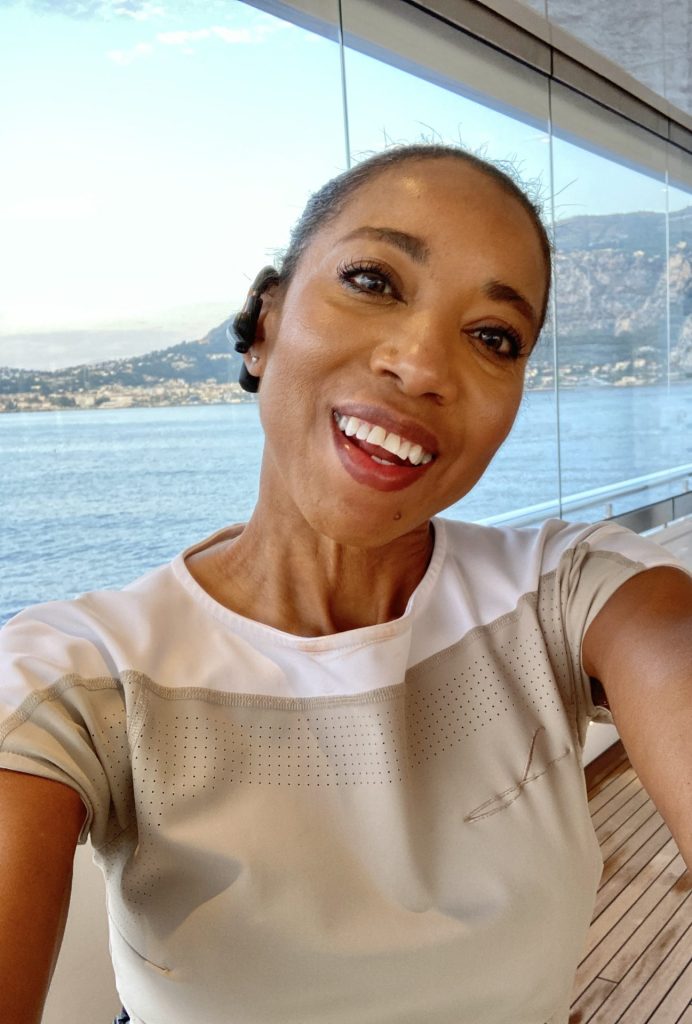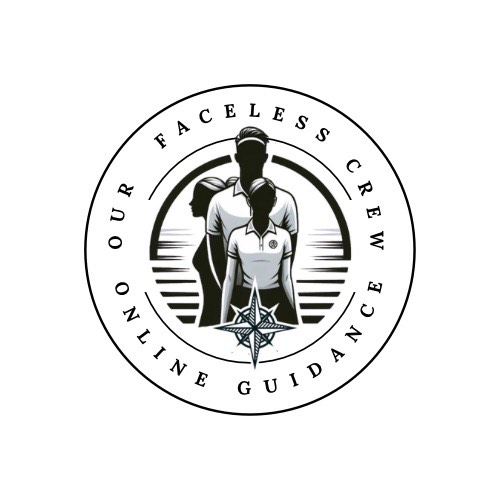In this month’s Life After Yachting feature, we speak with Tracey Boston, ex-Superyacht Stewardess and co-founder of Our Faceless Crew, which aims to help up-skilling yacht crew with expert tips, in-depth guides, and transformative digital courses.

When did you leave the Superyacht industry and what were your reasons for leaving?
To find balance that suited me best, I negotiated to work April to November each year for charters on my long term permanent yacht and would then be home in Caribbean for the winter season. Then I could day work or do temp gigs as a way of learning different service styles, different yachts and different programs. I unofficially left during the pandemic then on and off did temporary jobs for a couple years after the pandemic.
Before leaving, did you plan an exit strategy?
I used my tips for travelling the world and enjoying life, while saving my salary. Then used my saved up salary as a down payment on a house in the Caribbean, which I put for short term holiday rentals. This was to ensure that my yachting money did not all go to waste and that I would have a retirement plan since yachting does not provide any sort of pension. So when the pandemic hit and the yacht stopped paying my salary, I had my own nest egg to carry me over.
Most important lesson you learnt as a crew member that you now apply to day-to-day life on land?
I learned the importance of transferable skills. So many of the hard skills I learned as a stewardess and the soft interpersonal skills I focused on developing have helped me in life on land.
What is your current job role, and where are you based?
Currently co-founder and brand ambassador of the crew community, Our Faceless Crew doing all the social media, marketing, blogs, interviews, digital art, and PR and client relations!
Can you tell us more about Our Faceless Crew and what you do on a day-to-day basis?
Over the last few years, we began to recognize a slow but gradual shift towards greater appreciation of yacht crew, while recognizing the vast strides still needed to reward them for their hard work.
The reason for the platform & our mission:
As past crew ourselves, we identified key areas for improvement in the industry, based on our own experience and feedback from many crew, recruiters and even suppliers. Officially launched in March 2024, we are committed to transforming the industry’s attitude toward its workforce.
Our Faceless Crew is revolutionising the yachting industry by enhancing crew recognition and implementing comprehensive onboarding and training programs. We offer the Seas The Day IAMI G.U.E.S.T. accredited course online, aimed at equipping junior crew with essential knowledge and expectations before they join. By focusing on continuous soft skills training and fostering trust between employers and employees, we aim to significantly improve crew retention and overall job satisfaction.
Our mission promotes leadership development at all levels and encourages crew to build personal brands as industry ambassadors, leveraging social media platforms to reshape public perceptions. We are creating a supportive community dedicated to upskilling and professional growth, setting new standards for excellence and camaraderie in yachting. Founded by myself and Blaz Soklič, experienced crew members now working shoreside, we offer digital guides, mini-courses, and templates that address gaps in traditional training, preparing crew for real-life challenges onboard.

“We are creating a supportive community dedicated to upskilling and professional growth, setting new standards for excellence and camaraderie in yachting.
Founded by myself and Blaz Soklič, experienced crew members now working shoreside, we offer digital guides, mini-courses, and templates that address gaps in traditional training, preparing crew for real-life challenges onboard.”
The good, the bad and the ugly parts of transitioning from yachts to shore?
The good: attempting to have a normal family life
The bad: Getting used to the regular salaries combined with inflation and having to cook for myself again!
The Ugly: navigating the competitiveness of the shore-side of the yachting industry
What is the hardest struggle you have faced since leaving the industry, and how did you overcome it?
Not having the same level of financial freedom I had before. This has resulted in me tolerating and staying in certain situations I would not stay in normal circumstances.
Read more: Life After Yachting: Oceanform. From Wearing Uniform To Designing Them
Did you have any other career options in the back of your mind when you were considering your life after yachting?
I honestly thought of going back to flying (flight attendant) for some time and I’m still considering dipping my feet back into the yachting pond for a refresher and to experience the sea life again.
If you could return to the start of your yachting career, would you change anything?
I truly did it my way so would not change a thing. I started off freelancing to see if it was really a good career move and I navigated work-life balance well when I negotiated my 7 months on/5 months off program.
What does success mean to you and what is your career vision for the next 5 years?
We hope to continue to develop our community and platform, continue to provide helpful guides as well as continue to collaborate with other industry leaders, influencers and recruiters to provide leadership enhancement, relevant information to crew via our website, our blogs, resources and future online training. We especially want to continue to encourage crew to use LinkedIn to elevate their professional brand, after recognizing the practical effect of using it as a complement to one’s CV. We hope to develop more guides for yacht crew to help them learn how to effectively utilize the LinkedIn platform.
Lastly, can you share 3 pieces of advice for crew members thinking about their life after yachting.
1- have your exit plan from the moment you start your first position. Ie. Save some money, invest in property or something which appreciates over time in value
2- continue to upskill at every opportunity. If the boat has a training budget, put your hand up for it and practice continuous learning. Do small courses, develop the skills ( both hard and soft) which may not be your strengths. Train for your exit plan
3- cultivate a leadership mindset from the start. Understand that you can be a leader even in the most junior position. Leadership is not about being a head of department. It’s about developing teamwork, and an onboard culture of inclusivity, empathy and tolerance of others.
To read more Life After Yachting articles, click here.
If you are interested in featuring in your own Life After Yachting segment, please get in touch via hello@superyachtcontent.com
To keep up to date with the latest Superyacht Content News, click here.
Sign up to our Newsletter below:

.gif)

.gif)















